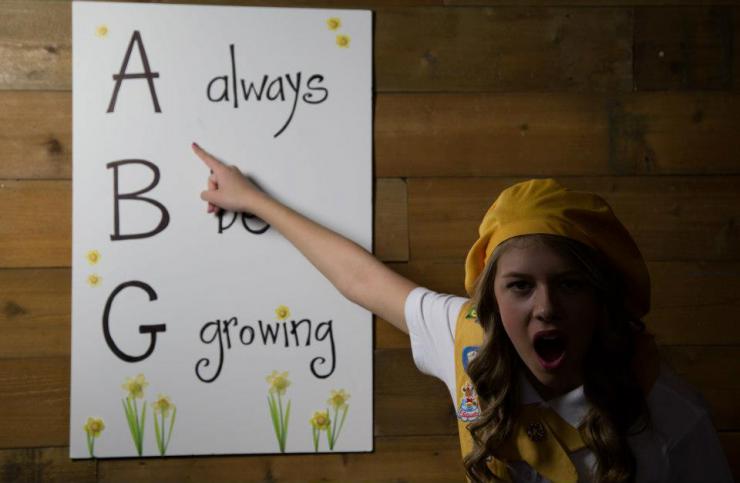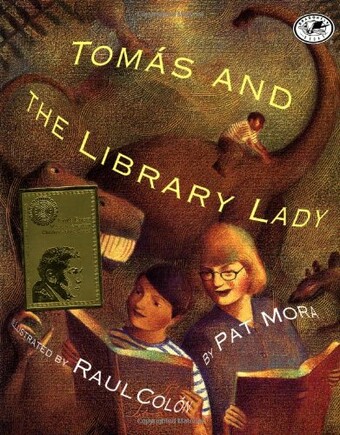Taking Children Seriously at Fun House Theatre and Film

What if the only thing “childish” about a children’s theatre was the age of the performers? Youth acting programs can be found in every corner of the Dallas-Ft. Worth metroplex, and the majority of these programs present watered down fairy tales or “junior” versions of musicals. Most of these productions aim towards an audience of supportive family and friends, falling into the “every child deserves a trophy” line of thought. In contrast, Jeff Swearingen and Bren Rapp created a new theatre company for child performers with a unique pedagogical platform, one that encourages children to tackle difficult material and concepts to achieve excellence in the acting craft. Fun House Theatre and Film, created in 2011, aims to build future artists—youth who can enter the professional world with a distinct set of tools for any circumstance.
Before starting the company, Swearingen taught theatre for children ten years locally while also performing professionally. While he enjoyed teaching kids, he did not agree with certain philosophies of what children are capable of or the methods of current practices. He noticed a lack of vigorous training in youth theatre, contrasting the discipline-oriented training in music lessons or martial arts instruction. Current programs lack the opportunity to master anything since classes are sporadic and many companies promote basic participation rather than skills. Rapp notes that some students in these participation programs are ready to make bigger strides, but they are placed in a classroom with other children who are not. As a result, teachers have to play to the lowest common denominator of instruction, and the students who can handle more advanced material get lost in the shuffle. Before creating Fun House, Rapp’s son was a student under Swearingen. She noted how Swearingen’s approach to training children provided a unique outcome that exceeded her expectations. When he almost left teaching, Rapp offered to create a new educational home for Swearingen’s work with complete freedom relating to pedagogical methods.
This new process for children’s training combines tenets of martial arts with acting concepts that are traditionally expected from adult performers. Swearingen has been greatly influenced by Eastern martial arts practices, specifically Kung Fu. The technical mastery of martial arts is mirrored as he teaches children to become masters of the acting craft—like a carpenter passing down his knowledge to an apprentice. This process takes time and a significant amount of discipline from the children. Other kinds of programs do offer weeks of courses and classes, but to learn under one or two artists for years is not commonplace in theatre. It is found in other artistic disciplines—I studied piano under the same teacher for over a decade—but theatre training is varied and sporadic. Perhaps our culture of immediate success and stardom has become too powerful, even influencing how we teach our own art form. Even though one of their first students leads a Nickelodeon series and many others win regional acting awards, Rapp cautions that these are simply a byproduct and not the mission of their company. With all the public attention, many parents and children have flocked to Fun House, but those who attempt to find a quick path to fame usually weed themselves out. This institution heightens the process and skill of the actor instead of talent or natural ability.
This new process for children’s training combines tenets of martial arts with acting concepts that are traditionally expected from adult performers.
The tenets of Fun House Theatre and Film appear more applicable to adult actors, since most them stem from actor Yoshi Oida’s The Invisible Actor, David Mamet’s True and False, and Peter Brook’s The Empty Space. From these works, Swearingen and Rapp encourage responsible storytelling, clarity, and consistency in each performance. Even though a performer may only be eight years old and carrying a full-length play, they are responsible for “uplifting the story and every choice in the script,” Rapp states. Within this process, there is great respect for the playwright, as these pint-size actors explore subtext and uncover meanings just like an adult actor. The children are taught concepts like Mamet’s: “The playwright gives you what you need.” Swearingen works with the actors to make clear choices for the character, not simply playing for laughs or to be cute. They are genuinely invested in the circumstances of the play and present characters in a truthful, realistic manner. Clarity also relates to Eastern practices, specifically Yoshi Oida’s concept of The Invisible Actor—one who is always holding up the puppet strings of the performance. Even though the audience may be laughing at the irony of children playing Stanley Kowalski or Blanche DuBois, the child performers remain focused on the circumstances of their characters. These young actors are also expected to be consistent in each performance, even if the show runs three or more weeks. This reinforces the Eastern influence of skillful performance, something that can be repeated and developed only through constant practice. Swearingen believes that an actor who changes up their performance is actually a selfish one, because they are not offering the same experience to each audience member. If a child is learning these concepts at nine or ten, imagine what they are capable of as teenagers or adults.
Beyond training, Fun House emphasizes mastery by encouraging professional critics to review productions. These reviews are posted alongside professional productions on a public platform—there’s no “kids” section in The Dallas Observer or Theater Jones. Initially, Rapp and Swearingen received negative feedback for this choice, as if they should protect the children from criticism. But Rapp refutes this, “It’s all a part of holding them accountable for what they’re doing, knowing if they told the story and got it across to the audience.” The critics are honest with their responses, reviewing the actors like any other production.
Our culture emphasizes the “precious” nature of children, that they should avoid humiliation at all costs. As a result, there are countless programs where every child gets a role or a moment to shine—working with a theory that confidence is constructed through constant positive feedback. If a parent senses any damage to their child’s self-esteem, they are quick to pull kids out of a program or blame the teacher. When a person is constantly told that they are the best or receives roles without any struggle, Swearingen questions what happens once the child goes to college or auditions professionally. If they never learned how to push through the struggle of a tough industry in training, how will they survive as artists? Swearingen connects this approach to martial arts:
If you just tell a kid “You’re so good! You can defend yourself in a knife attack!” When the knife attack happens, you realize that you had nothing but false confidence. Everyone believes that we have to save children from humiliation. But in Eastern thought, everyone grows from humiliation only. Why do you want to spare them from growth? They’ve got to bump their head sometimes.
While the actors may appear too young to pick up on the concepts or push through hardship, their performances and repertoire of plays tell a different story.
The material that Fun House chooses contains a wide range of classics, modern American realism, and original adaptations. Their young actors have tackled unabridged Mamet, Stoppard, Shepard, LaBute, and Shakespeare. Without a season of works, Swearingen and Rapp connect the needs of current students to their performance material. For example, two brothers in the company displayed a need for advanced realism, so they produced Sam Shepard’s True West for those actors. Initially, the purpose of having teens perform Shepard or LaBute’s The Shape of Things may appear to be to shock or create a buzz, but Rapp and Swearingen disagree. Choosing these works avoids the “juniorization” epidemic, where everything messy or disturbing has been taken out of a play. The students who have been working with Fun House since the beginning have more experience with American Realism than the typical undergraduate theatre student. If there are themes in a play that appear too mature for the students, Fun House also produces adaptations that transform the drama of a classic into a more relatable situation for a child. Even though plays like A Streetcar Named Desire is transformed into the context of a Kindergarten classroom, these pint-size actors are expected to give performances with as rich detail as any adult professional actor. The plays are not meant to be parodies of the original work as Swearingen claims to be “true to the intent of the original plays.”
Fun House first received attention with Daffodil Girls, a retelling of David Mamet’s Glengarry Glen Ross with girl scouts. Instead of a high stakes real estate play, young girls are battling it out for territory in their neighborhood to sell cookies. Even though the circumstances of Daffodil Girls may seem humorous, the dialogue is in the same realistic tone and cadence of Mamet. Rapp notes the rationale for why they are interested in providing realism for children, “There’s not that much material out there for children that is super-realistic or that explores domestic relationships.” This past winter, they produced Yes, Virginia Woolf, There is a Santa Claus—a transformation of Edward Albee’s Who’s Afraid of Virginia Woolf? In the reimagining, George and Martha are replaced with Santa and Mrs. Claus. The play still maintains the tone of an Albee work with rich subtext and exploration of what is true in the situation. It avoids the simplistic understanding of characterization that most plays for children embody.
Everyone believes that we have to save children from humiliation. But in Eastern thought, everyone grows from humiliation only. Why do you want to spare them from growth? They’ve got to bump their head sometimes.

Their current production is titled A School Bus Named Desire, inspired by the great Tennessee Williams play. It was developed for their smallest performers—the average age of the performers is ten—to experience a domestic realism situation and dialogue style. The full-length drama follows Blanche DuBois as she transfers to a new Kindergarten class and copes with social anxiety. The main characters, notable quotes, and conflicts from Williams’ play are all present, but transformed for a younger group of performers. While it may appear humorous on the surface, the play addresses the darker themes of violence and suffering in a realistic manner—and the kids tackle it. These adaptations demonstrate that children can grasp these emotional peaks and valleys, because they experience them in their own lives as human beings. While the actors are aware that an audience will find their performances humorous—since the play is set in a Kindergarten classroom—the actors still play their characters as honest as possible. The actors are aware of their duality as performers, playing a character sincerely while the audience is having a very different experience. Swearingen notes that it takes a great amount of skill on their part to accomplish this.
Talking with two veterans of the program, it is apparent that the training at Fun House has encouraged them to step out on their own two feet as artists. Kennedy Waterman, age fourteen, felt inspired to write her own one-woman show Allergic Me and performed it in Dallas’s Solo Fest—alongside established performers. Doak Rapp, age sixteen, has gained professional experience working outside of Fun House and notes that the training has strengthened his artistic ambitions. They both noted the variety of works they have been exposed to, playing parts that adult performers only dream about. They both have ambitions to become professional actors when they are adults, possibly even become acting teachers. Referring back to martial arts training, Swearingen believes that his mission is to make the students better than the master, that it is his duty as an instructor. Within the four years of operation, Fun House has created a small but mighty crop of future professional artists that are advancing quickly in their young careers.








Comments
The article is just the start of the conversation—we want to know what you think about this subject, too! HowlRound is a space for knowledge-sharing, and we welcome spirited, thoughtful, and on-topic dialogue. Find our full comments policy here